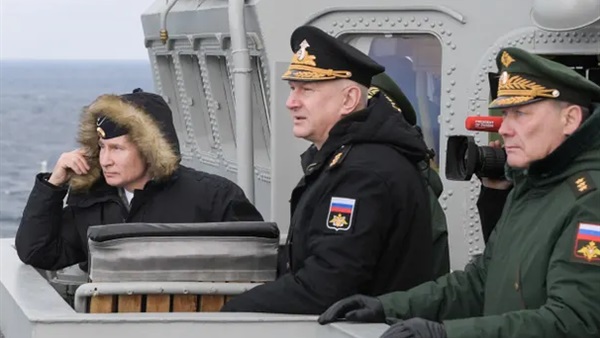Iran and Russia find common ground through Syrian and Ukraine wars

When a
Russian plane arrived in Iran with €140m in cash and a booty of captured
western weapons, an exchange for Iranian drones, it marked a new phase in a
seven-year alliance between two unlikely bedfellows.
The delivery
of cash and weapons was reportedly made in August, after Russia received its
first deliveries of drones to support its war in Ukraine. It was Iran’s first
known contribution to the Russian offensive in Europe. But the bond between the
two countries had been forged on another continent ravaged by war, the Middle
East.
At the
height of Bashar al-Assad’s scramble to save Syria from forces who had battered
his army to the point of defeat, the Iranian general Qassem Suleimani flew to
Moscow to meet Vladimir Putin. There he rolled out maps in front of the Russian
leader and spelled out Assad’s travails. The visit laid the ground for Russia’s
2015 intervention, and created a pact between two countries with little in
common except a shared desire to shred the established order and undermine the
west.
While Syria
was the arena to start such a collaboration, Ukraine is fast becoming a
battlefield on which to cement it. Iran’s usually inflexible Islamic leaders
and Putin’s brand of secular blood-and-soil nationalism have found common
ground despite vastly different styles of governance and goals. Their shared
desires have made them natural partners.
“It was in
Syria that this partnership first took form and in Ukraine where it’s evolving
yet further,” said Charles Lister, a senior fellow and director of the Syria
programme at the Middle East Institute.
“Whereas in
Syria it was Iran that fought the long battle [in support of Assad] only to be
rescued by a Russian intervention, the opposite has been true in Ukraine, with
Iran’s more recent entry into the conflict through strategic weapons transfer
to aid Russia’s ailing campaign.”
Sky News,
which first reported the Russian cash delivery this week, said its sources
suggested more Iranian drones were likely to be delivered, deepening a
collaboration between the two states and exposing civilian targets to more
devastation before winter.
Drones
already delivered have been used to devastate Ukrainian cities. Many have been
deployed as kamikazes, while others have missile platforms that have battered
hospitals and electricity stations.
Widespread
attacks on civilian targets have been a feature of Russian attacks on eastern
Syria throughout the past seven years, where hospitals, schools, bakeries and
food queues have been routinely targeted and at least several thousand
civilians have been killed. Last week, a Russian drone helped guide Syrian
missiles containing cluster bombs on to a camp for displaced Syrians in the
country’s north-west, killing nine people and wounding 75 others.
“The biggest
concern for the Syrian people is putting an end to the terrorist attacks that
continue to murder their children and pursue the displaced across the country,”
said the White Helmets, a first responder group that operates in opposition-held
parts of Syria. “However, it is difficult to negotiate and make demands from a
military machine that knows nothing but killing. It is also difficult to ask
for help from an international community governed by political balances and
regional interests away from human rights tracks.”
Russia’s
military campaign has been focused on northern Syria, but with Iran it has
carved out spheres of influence across the country, sharing cogs of the Syrian
military and intelligence apparatus. Both countries hold vastly different views
of the type of country they expect to emerge from the ruins of Syria, but for
now they are setting visions of end games aside.
“With [the
generals] Dvornikov and now Surovikin, Russia’s war in Ukraine has been managed
by Syria veterans,” said Lister. “Both of whom invested deeply in establishing
and expanding upon a strategic partnership with Iran’s Quds Force.
“Allies help
each other out through thick and thin, and Ukraine shows just how much Iran
must value its relationship with Putin. While China is smart enough to keep its
distance, it’s not especially surprising to see the likes of Iran – and North
Korea, another party to the Syria alliance – doing whatever it can to empower
Russian aggression.”





